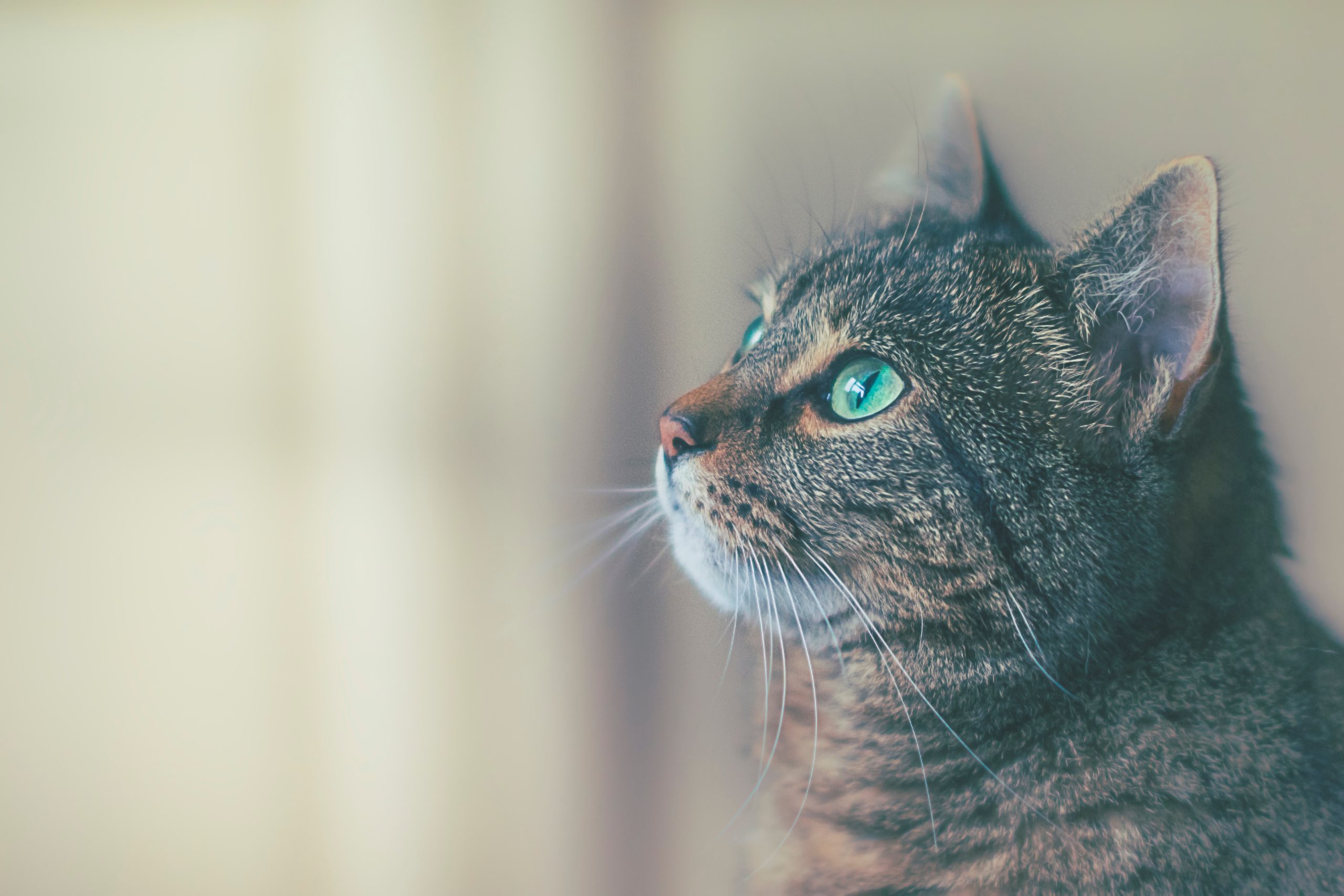Allergies in Cats
Just like humans, cats can suffer from allergies. In fact, allergies are one of the most common medical conditions affecting cats, but what exactly causes these allergies in cats, and what should you do as a responsible cat owner if you think that your cat may have an allergy? This blog will answer exactly that, helping you keep your cat in top health all year round.
Dermatology From Knutsford Vets
Dr Rachel Caines has Advanced Certification in Dermatology. Book an appointment to get to the bottom of your pet’s skin problems today.
Content
- What causes allergies in cats
- Symptoms of allergies
- Common allergies in cats
- How allergies can be treated
What causes allergies in cats?
An allergic reaction happens when the immune system becomes overly sensitive to certain foreign substances, known as ‘allergens’. The body then tries to get rid of these substances, which can cause a whole host of symptoms displayed by your cat.
Allergies are pretty unique to the individual and the offending substances are usually harmless, so even if one of your cats does not appear to be affected by a certain substance, your other cat may become very irritated by it and display an extreme reaction.
Symptoms of allergies
Allergies can cause a wide range of symptoms in cats, and your cat may experience one or many of the symptoms concurrently. Below are some of the common symptoms you should watch out for, grouped broadly into 3 categories.
Respiratory symptoms
These occur when the allergen affects the respiratory system and can include wheezing, coughing, sneezing, snoring caused by an inflamed throat and nasal and/or eye discharge.
Skin symptoms
Allergies commonly cause problems with cat’s skin, including itchy skin, increased scratching, bald patches in the coat, paw chewing or swollen paws and an itchy back or base of tail.
Digestive system symptoms
Perhaps the most unpleasant range of symptoms for a cat owner to deal with, these include vomiting, diarrhea and flatulence.
Common allergies in cats
There are many different causes of allergies in cats, but they can be categorised into three groups – food allergies, environmental allergies and flea allergies.
Food Allergies
As the name suggests, food allergies are reactions to certain types of foods, and are an immune system response to a specific protein found within the food. The foods most commonly associated with allergies in cats include beef, fish, chicken, and dairy products, but vegetable proteins, food additives and preservatives can all also cause a food allergy.
Food allergies can occur at any point in a cat’s life, and genetic disposition appears to play an important role in determining food allergies. A food allergy may cause any of the symptoms that we have already mentioned, and symptoms will present themselves all year round for as long as the cat is still eating the offending food.
In order to determine the cause of a food allergy, your vet will recommend undertaking a food trial which involves feeding your cat a special diet which does not contain any proteins that your cat has been previously exposed to, for 6-8 weeks.
Environmental Allergies
Environmental allergies occur in response to something in the cat’s environment, also known as atopic dermatitis. The most common environmental allergies include pollens, grasses, plants, mold, mildew and dust. If your cat’s symptoms are seasonal (worse in the summer and better during the winter) then it is most likely at least partly due to pollen.
Cats who spend time outdoors are more likely to suffer from environmental allergies as they will be exposed to more potential allergens than a cat who stays indoors. Atopic dermatitis is a lifelong condition, so whilst there are some treatments that can reduce symptoms (such as steroids and immunosuppressive drugs) there is no effective cure and your cat’s condition will most likely need to be carefully managed for the rest of their life.
Flea Bite Allergies
Finally, another common allergy in cats is an allergy to flea bites. Fleas are irritating for all cats, but for those who suffer with an allergy to flea bites they present a much bigger challenge. A cat with a flea allergy has a severe reaction to every single flea bite (specifically, the flea saliva), which causes intense itching and inflammation of the skin. Luckily, a flea allergy is usually relatively easy for your vet to identify and can be managed by yourself through following a strict flea treatment and prevention regime, allowing your cat to live a happy and itch free life.
How allergies in cats can be treated.
The first step in getting treatment for your cat’s allergy is to bring them to the surgery so that one of our vets can identify what type of allergy your cat has. This will include discussing your cat’s history, home set up and lifestyle and performing a physical examination. If the source of the allergy cannot be determined from these steps alone, your vet may want to conduct additional tests which may include skin scrapes, a food allergy test or blood tests.
Luckily, here at Knutsford Vets Surgery, we have a resident dermatology expert in Dr Rachel Caines. Her Advanced Certification in Dermatology will enable you to get a more in depth understanding of any skin allergies that are affecting your pet. Her expertise is also available on a referral basis or for a second opinion.
Once the type of allergy has been identified, the most effective treatment is to remove the allergen. For example, once you identify what food is causing your cat’s food allergy, avoiding that food should solve the problem. Similarly, keeping up to date with flea treatments will minimise symptoms for a cat with a flea allergy.
Unfortunately, it is not always possible to completely remove allergies from your pets environment, particularly with environmental allergens. For example, it is not possible to completely remove pollen or dust from your cat’s environment, no matter how hard you try! You can, however, try and reduce them through bathing with a shampoo recommended by your vet, and by keeping your house as clean as possible, regularly cleaning your cat’s bedding.
Unfortunately, in some instances these steps won’t be enough to make your cat comfortable, so your vet may recommend medications such as steroids, cortisone, antihistamines and immunosuppressive drugs.





